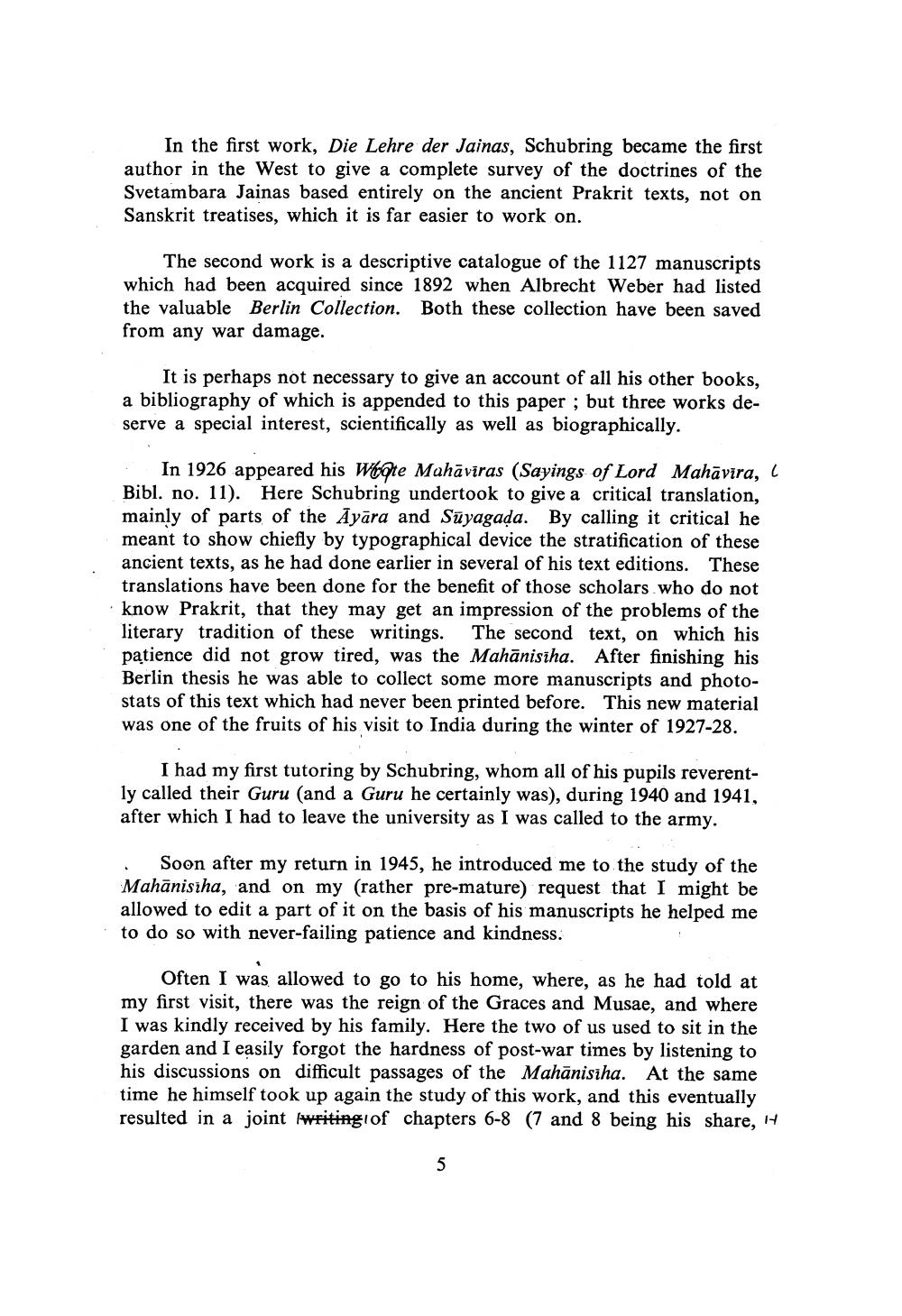Book Title: Professor Dr Walther Schubring Author(s): F R Hamm Publisher: F R Hamm View full book textPage 4
________________ In the first work, Die Lehre der Jainas, Schubring became the first author in the West to give a complete survey of the doctrines of the Svetambara Jainas based entirely on the ancient Prakrit texts, not on Sanskrit treatises, which it is far easier to work on. The second work is a descriptive catalogue of the 1127 manuscripts which had been acquired since 1892 when Albrecht Weber had listed the valuable Berlin Collection. Both these collection have been saved from any war damage. It is perhaps not necessary to give an account of all his other books, a bibliography of which is appended to this paper; but three works deserve a special interest, scientifically as well as biographically. In 1926 appeared his Wote Mahaviras (Sayings of Lord Mahavira, Bibl. no. 11). Here Schubring undertook to give a critical translation, mainly of parts of the Ayara and Suyagaḍa. By calling it critical he meant to show chiefly by typographical device the stratification of these ancient texts, as he had done earlier in several of his text editions. These translations have been done for the benefit of those scholars who do not know Prakrit, that they may get an impression of the problems of the literary tradition of these writings. The second text, on which his patience did not grow tired, was the Mahānisiha. After finishing his Berlin thesis he was able to collect some more manuscripts and photostats of this text which had never been printed before. This new material was one of the fruits of his visit to India during the winter of 1927-28. I had my first tutoring by Schubring, whom all of his pupils reverently called their Guru (and a Guru he certainly was), during 1940 and 1941, after which I had to leave the university as I was called to the army. Soon after my return in 1945, he introduced me to the study of the Mahānisiha, and on my (rather pre-mature) request that I might be allowed to edit a part of it on the basis of his manuscripts he helped me to do so with never-failing patience and kindness. Often I was allowed to go to his home, where, as he had told at my first visit, there was the reign of the Graces and Musae, and where I was kindly received by his family. Here the two of us used to sit in the garden and I easily forgot the hardness of post-war times by listening to his discussions on difficult passages of the Mahānisiha. At the same time he himself took up again the study of this work, and this eventually resulted in a joint writing of chapters 6-8 (7 and 8 being his share, H 5Page Navigation
1 2 3 4 5 6 7 8 9 10 11 12 13 14
